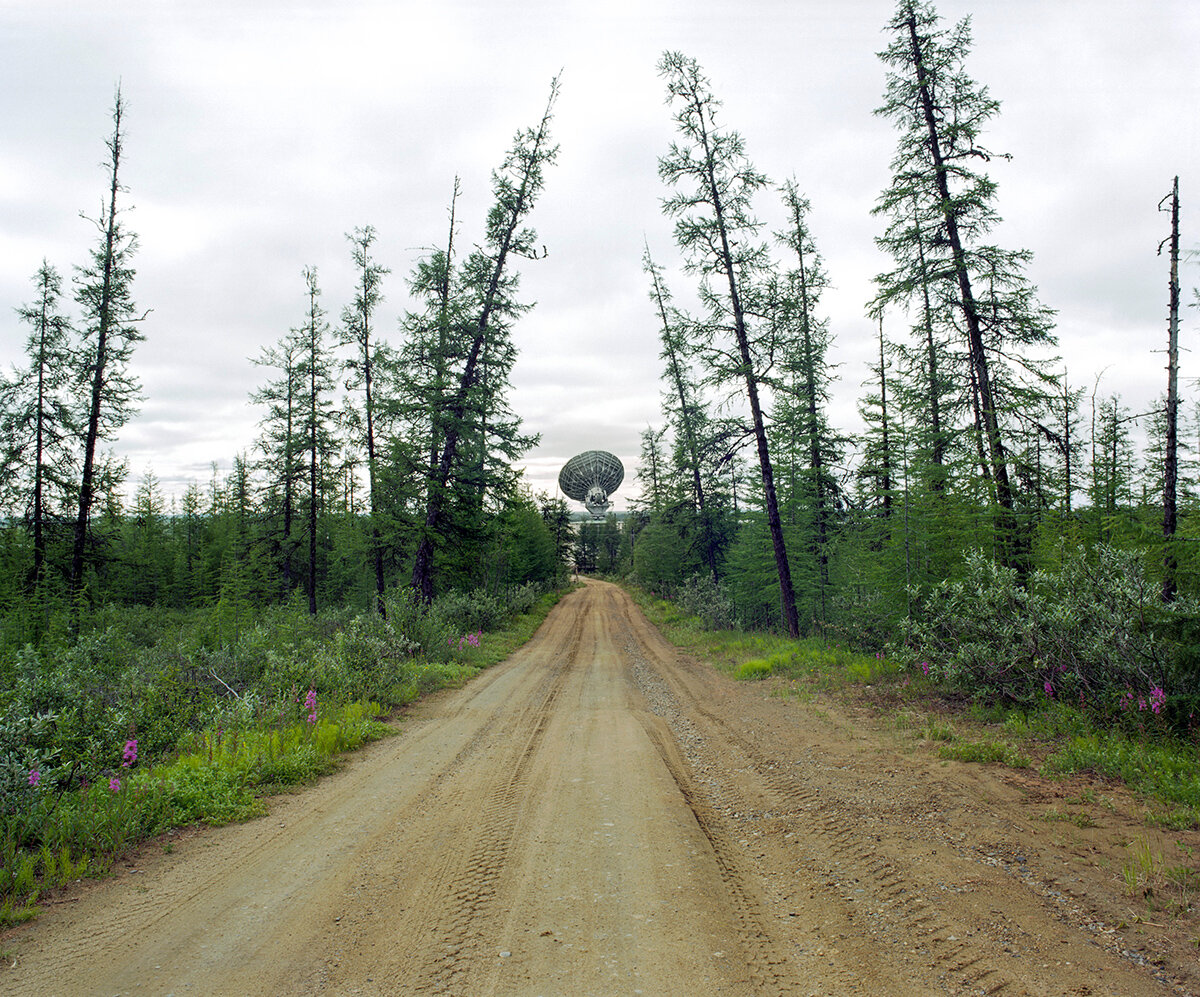
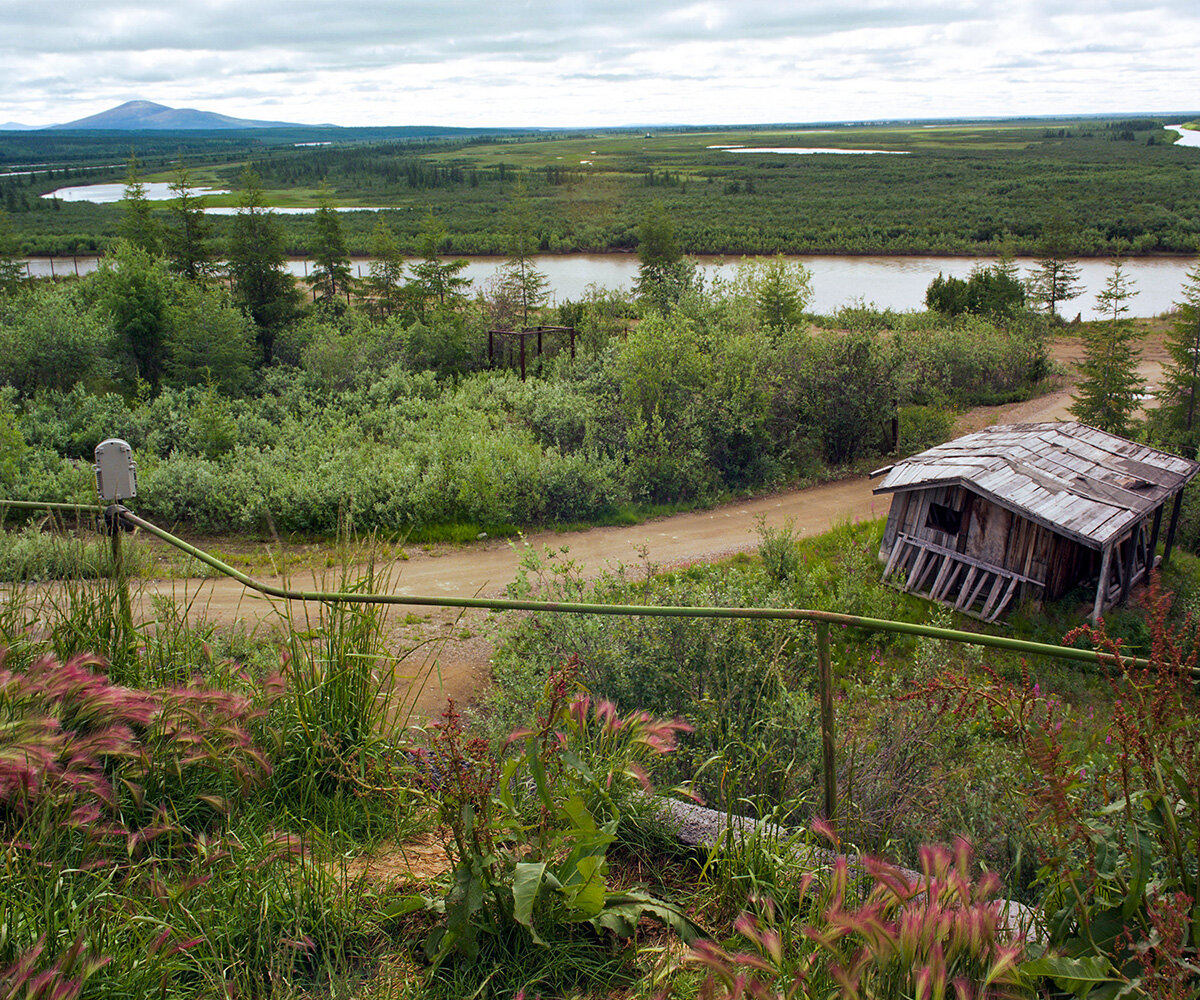
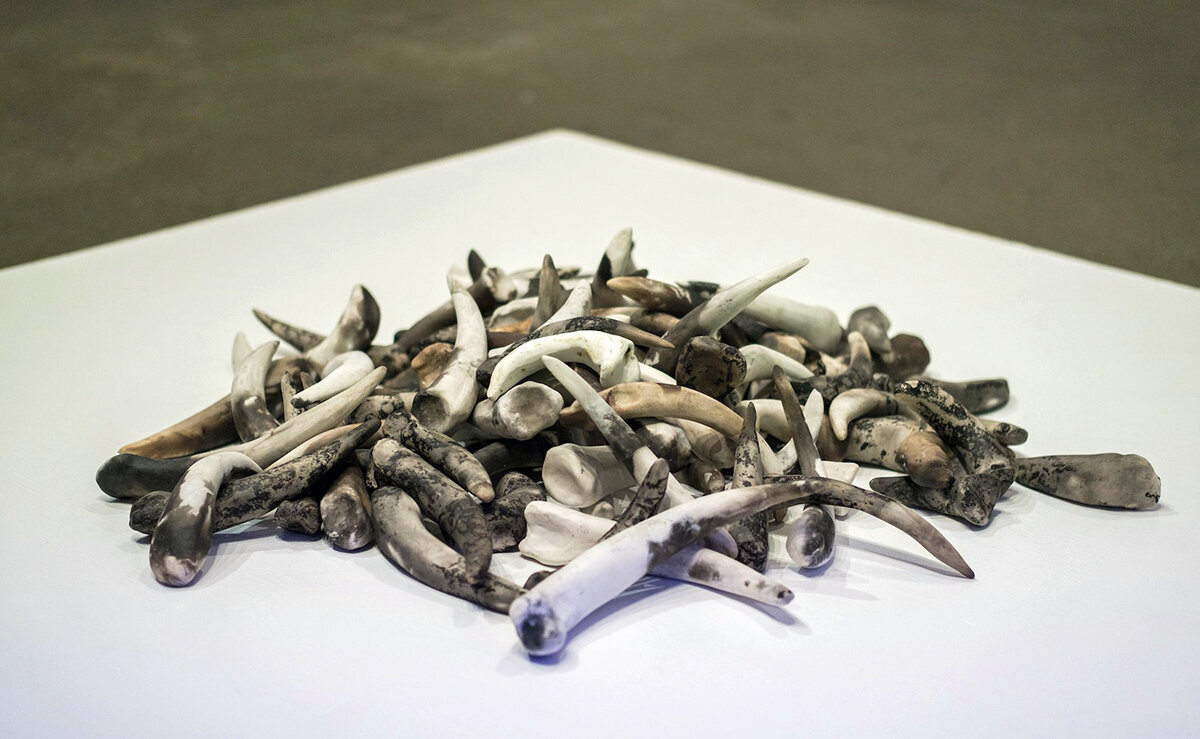
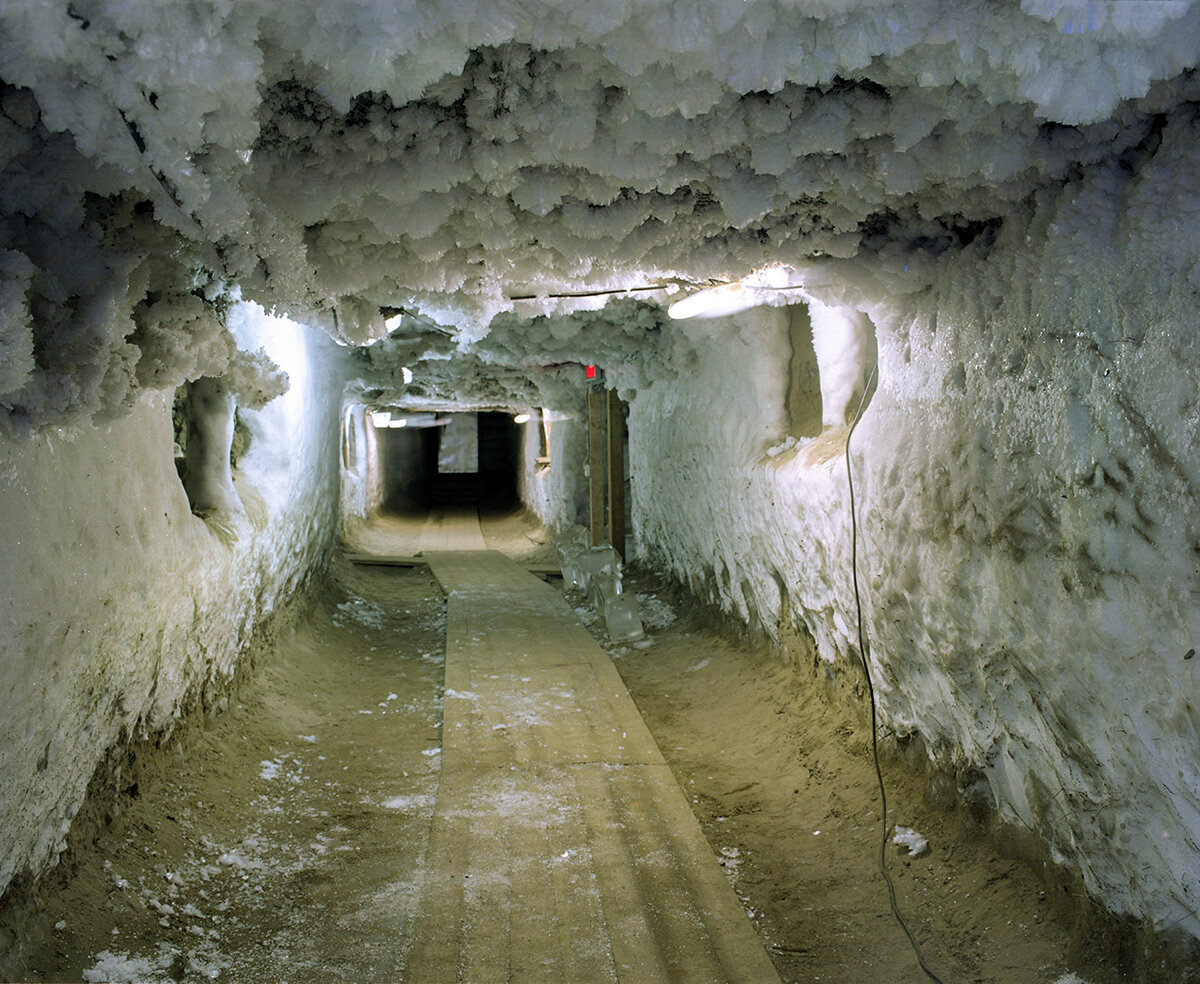
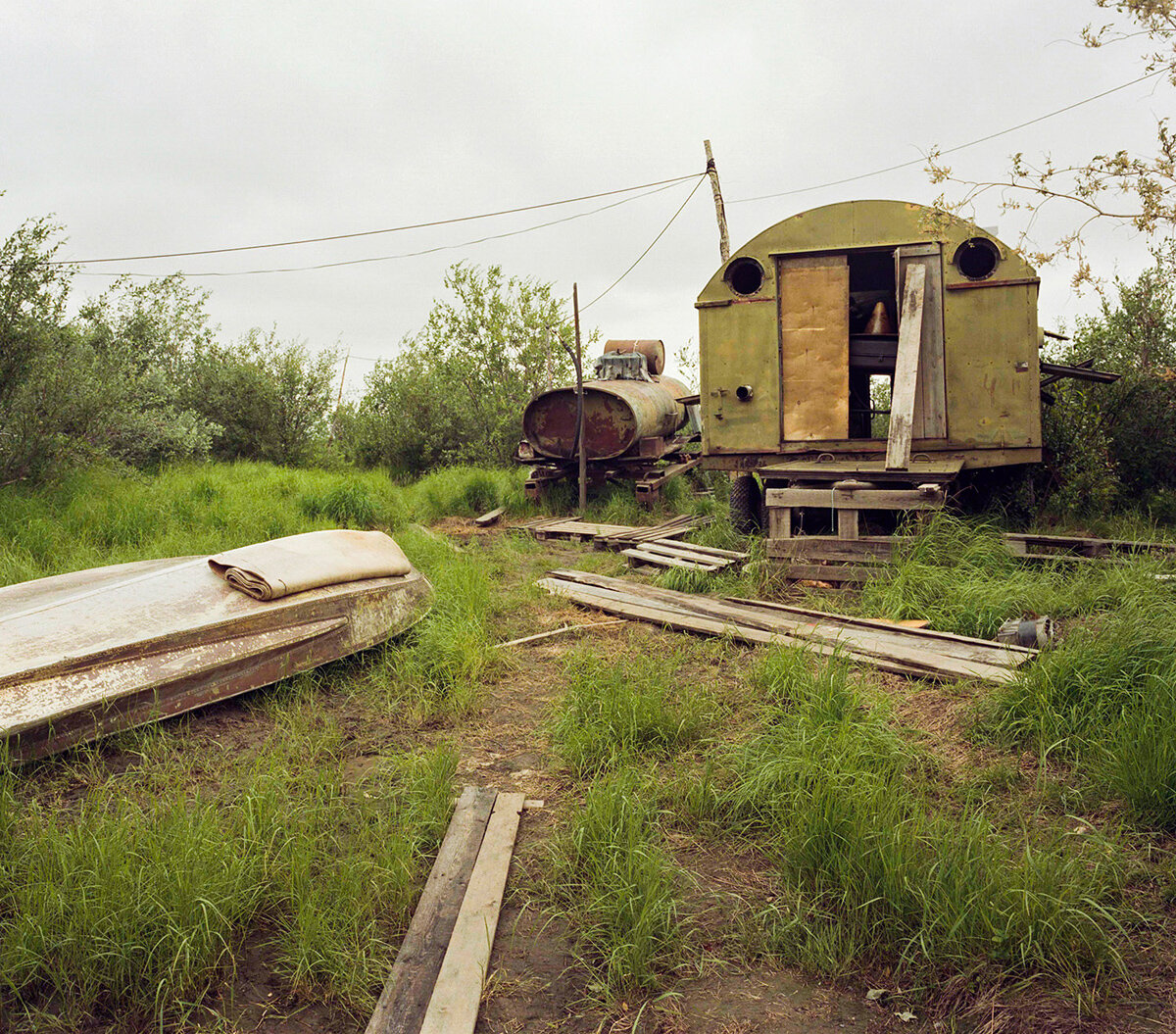
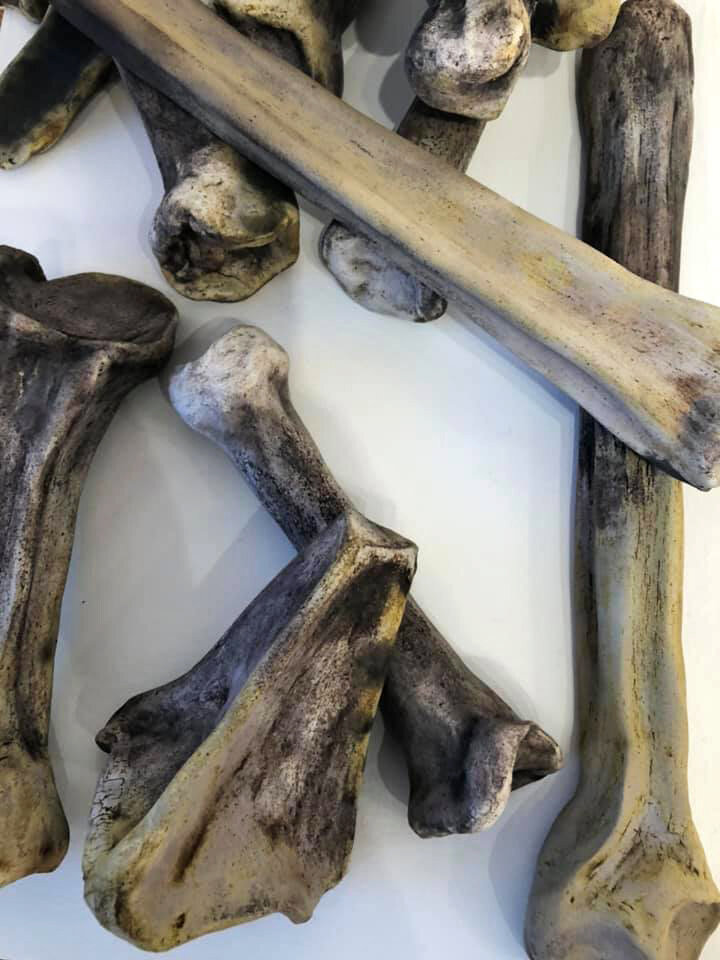
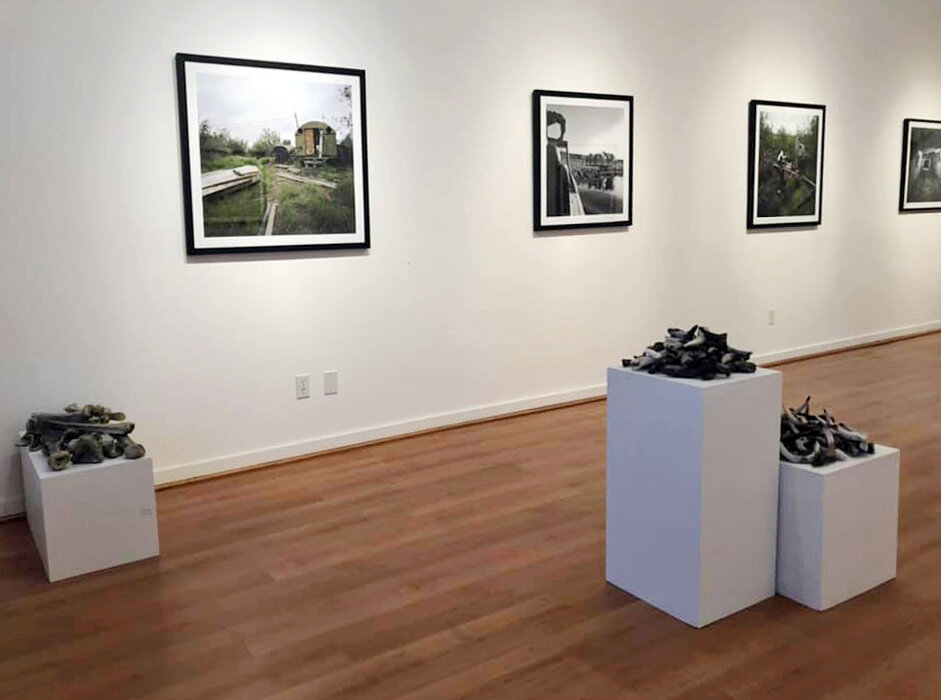
Pleistocene Park
Tara Nicholson
November 6 to December 5, 2020
Located in Eastern Siberia (Yakutia) on the edge of the Arctic Circle, Pleistocene Park is an engineered, multi-generational rewilding study to relocate herds of animals to cultivate shrub forest back to grassland. Directed by Sergey Zimov and his son Nikita, it may conjure up Jurassic Park-like narratives with their successful insulation of permafrost to slow the release of carbon from below the surface.
A remote territory supported by all-terrain vehicles, staff and outpost facilities, the park has become the world’s largest rewilding experiment. Simply described, imported animals including oxen, horse, moose and bison maintain the grassland via grazing which in turn insulates the permafrost and creates a natural support system similar to the Mammoth Steppe (14,500 years ago) to slow the release of carbon dioxide from the soil. In 2021, I will return to the park, the Mammoth Institute and the Melnikov Permafrost Institute (Yakutsk), all at the forefront of permafrost and cloning research to resurrect the woolly mammoth and its habitat. Together they continue to spark sci-fi storylines and worldwide media interest while their research occupies a grey area between intervention and invention and illustrates an intricate climate action landscape amongst the bizarre and uncanny.
The experience of seeing exposed Arctic permafrost has also fueled my recent production of fake ceramic bones and teeth. Currently, the problematic trade of prehistoric mammoth tusks is supporting the illegal sale of elephant ivory. While some may see this as a better alternative, the dangerous extraction processes of these bones and the connected destruction of Arctic habitat remain unresolved as permafrost becomes uncovered at a faster rate.
Tara Nicholson incorporates photography and installation within her research. She has travelled throughout the Arctic to document climatology, sometimes with a blurred line between sci-fi and actual science. Nicholson has exhibited across Canada, teaches at the University of Victoria and holds an MFA from Concordia University. Recently she attended Earthed, a climate-centred residency at the Banff Centre for the Arts and has received funding from the Canada Council for the Arts and the BC Arts Council. In 2020, Nicholson embarked on her PhD at UBC Okanagan to produce a body of exploratory landscape studies linking escalating changes within the Anthropocene. By documenting rewilding and extinction studies while witnessing waves of Indigenous and setter-allied land activism, she is exploring the role of art within activism and how the interpretation of climate action can affect its outcome.